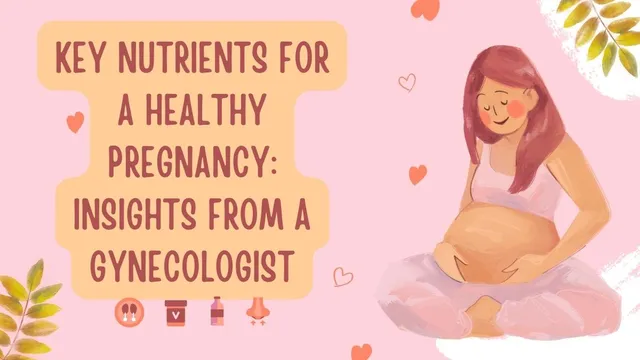- By Priyanka Munshi
- Tue, 25 Jun 2024 04:44 PM (IST)
- Source:JND
Nutrients are vital for a healthy pregnancy since they are essential for the mother's and the unborn child's growth and development. A well-balanced diet full of vital nutrients guarantees that the baby gets the building blocks it needs for healthy development and supports the physical changes a woman's body goes through during pregnancy.
Important nutrients include iron, which promotes increased blood volume and avoids anemia; calcium, which is necessary for the baby to build strong bones and teeth while supporting the mother's bone health; and folic acid, which is critical for preventing neural tube defects. Furthermore, sufficient consumption of omega-3 fatty acids promotes the development of the baby's brain and eyes, and protein is required for the development of fetal organs.
Minerals like zinc and magnesium, as well as vitamins like B6, B12, and C, assist the immune system, energy production, and cell growth, all of which are important for the general health of the mother and fetus. Both mother and child are guaranteed a balanced diet consisting primarily of fruits, vegetables, whole grains, lean proteins, and healthy fats, as well as adequate hydration.
Also Read: Dermatologist Reveals Special Summer Skin Care Regime To Attain Glowing Skin
In a conversation with Jagran English, Dr. Shwetha Kamath, who is a consultant in obstetrics and gynecology in advanced laparoscopy, infertility, and high-risk pregnancy at Rainbow Hospital, Hebbal, in Bangalore, talked about the most important nutrients that are necessary for a healthy pregnancy.
According to Dr. Shwetha, pregnancy is a pivotal time in a woman's life, marked by numerous physical, emotional, and psychological changes. One of the most critical aspects of ensuring a healthy pregnancy is proper nutrition. In India, where maternal and child health is a significant concern, the importance of a well-balanced diet during pregnancy cannot be overstated. According to the National Family Health Survey (NFHS-5), approximately 52.2% of pregnant women in India are anemic, highlighting the urgent need for nutritional awareness and intervention. This article aims to provide a comprehensive guide to the essential nutrients required during pregnancy and how expectant mothers can achieve a balanced diet.
A balanced diet during pregnancy is crucial for the health and development of the fetus as well as the well-being of the mother. Proper nutrition supports the growth of the baby’s organs, bones, and muscles and helps prevent pregnancy complications such as gestational diabetes and preeclampsia. Moreover, a nutritious diet can alleviate common pregnancy symptoms like fatigue, morning sickness, and constipation.
Key Nutrients For A Healthy Pregnancy
1. Folic Acid: Folic acid, a type of B vitamin, is essential for preventing neural tube defects in the developing fetus. Foods rich in folic acid include leafy green vegetables, citrus fruits, beans, and fortified cereals. It is recommended that pregnant women consume 400–800 micrograms of folic acid daily.
2. Iron: Iron is vital for the production of hemoglobin, which carries oxygen to the baby and the mother’s tissues. Iron deficiency can lead to anemia, a common condition among pregnant women in India. Iron-rich foods include red meat, poultry, fish, lentils, spinach, and iron-fortified cereals. Pregnant women should aim for 27 milligrams of iron per day.
3. Calcium: Calcium is necessary for the development of the baby’s bones and teeth. It also helps in the proper functioning of the circulatory, muscular, and nervous systems. Dairy products, such as almonds, broccoli, and fortified plant-based milks, are excellent sources of calcium. The recommended daily intake for pregnant women is 1,000 milligrams.
4. Protein: Protein is crucial for the growth and repair of tissues in both the mother and the baby. Good protein sources include lean meat, poultry, fish, eggs, dairy products, beans, and nuts. Pregnant women should consume about 70 grams of protein daily.
Also Read: 5 Easy And Delicious Foods To Enjoy This Rainy Season
5. Omega-3 Fatty Acids: Omega-3 fatty acids are important for the development of the baby’s brain and eyes. They can be found in fatty fish like salmon, walnuts, flaxseeds, and chia seeds. It is recommended that pregnant women include at least 200–300 milligrams of DHA, a type of omega-3 fatty acid, in their daily diet.
6. Vitamins And Minerals: Vitamins such as A, C, D, and E, as well as minerals like zinc and magnesium, play crucial roles in pregnancy. These can be obtained from various fruits, vegetables, nuts, seeds, and whole grains. Vitamin D can be garnered through adequate exposure to sunlight.
At last, Dr. Shwetha said, A well-balanced diet is fundamental to a healthy pregnancy, benefiting both the mother and the developing baby. By focusing on the right nutrients and adopting healthy eating habits, expectant mothers can support their own health and ensure the optimal growth and development of their baby. In a country like India, where nutritional deficiencies are prevalent, raising awareness about the importance of a nutritious pregnancy diet is crucial for improving maternal and child health outcomes.

